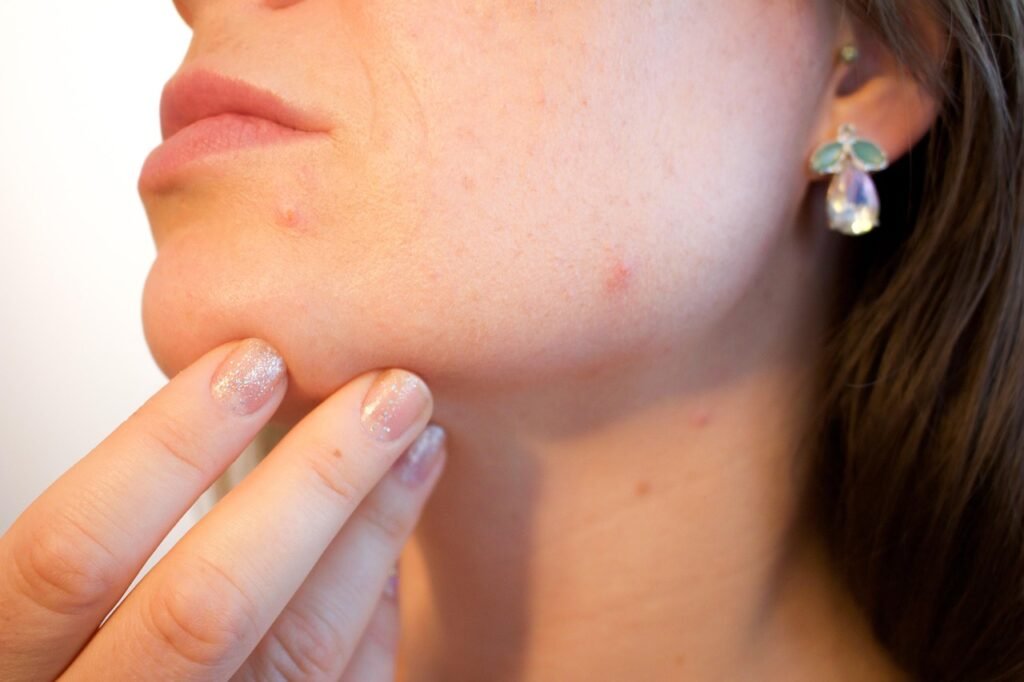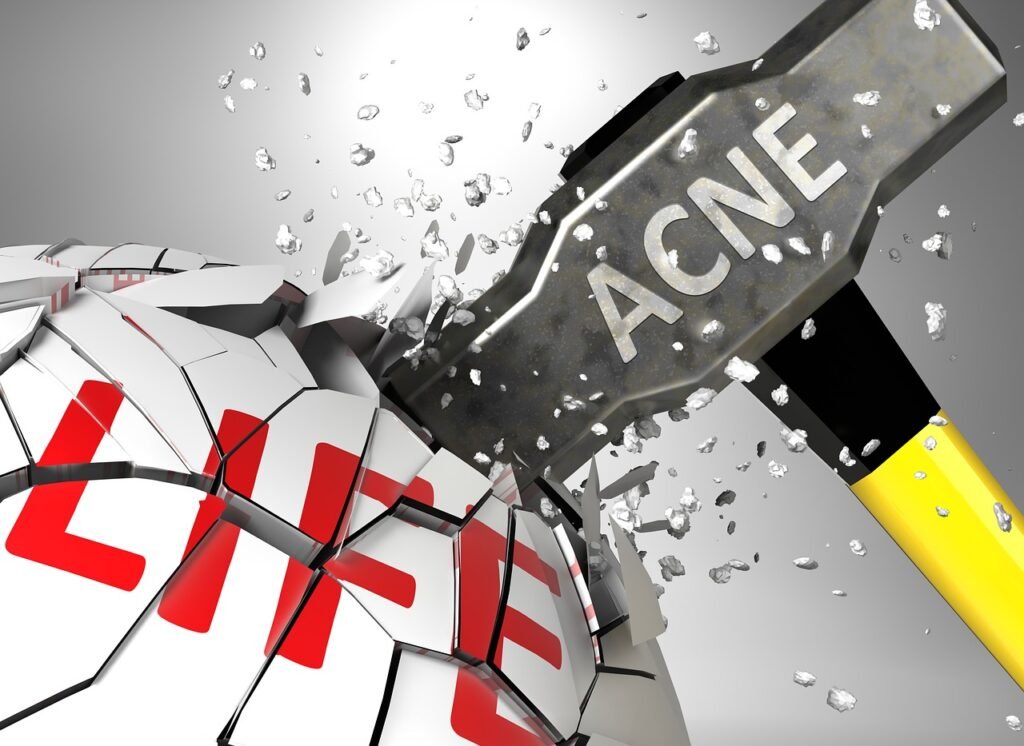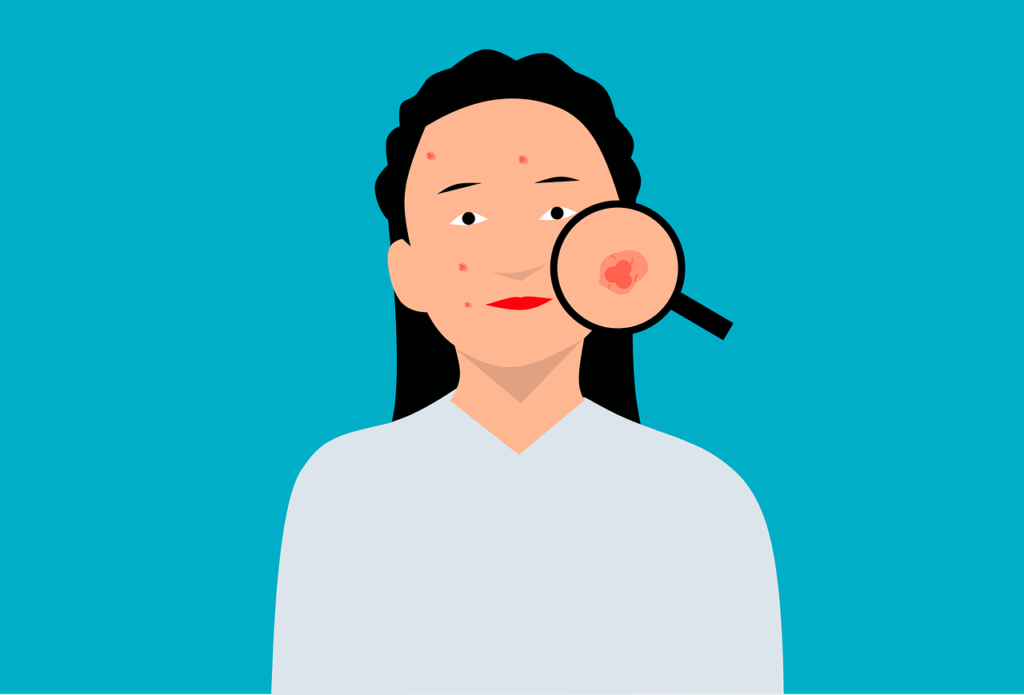Acnes white can be frustrating. White bumps create a troublesome appearance which causes your skin texture to become uneven and dull. You are among many people who battle with this skin issue so you should not feel alone in your struggle. The good news? Acnes white can be eliminated through appropriate skincare routines combined with adjustments in your daily habits.
In this guide, we’ll explore ten effective ways to prevent and treat acnes white so you can enjoy smoother, healthier skin. Let’s get started!
Read More About Natural Remedies Here
1. Cleanse Your Face Twice a Day
Washing your face is the first step to preventing acnes white. Dirt together with oil molecules and bacteria group inside pores creating whiteheads. Daily use of a mild cleansing product provides effective skin cleansing for two times throughout the day.
Select a facial product that drains away oil but does not produce dryness in your skin. A hard-cleaning routine will remove your skin’s oil production which produces additional oil.
2. Exfoliate Regularly
Dead skin cells can trap oil in your pores, causing acnes white. That’s why exfoliation is key. Use a soft exfoliating product 2–3 times per week to eliminate old skin layers while clearing out your pores.
Harsh scrubs should be avoided as they could harm your skin surface. Choose chemical exfoliators that contain either salicylic acid or glycolic acid. These products move down through your pores to break up the substance that blockages your pores.
3. Keep Your Skin Hydrated

Individuals tend to believe that people with oily skin do not require hydrating their complexion. That’s a myth! The water deficiency within your skin triggers its oil production process which ultimately turns into pore congestion that leads to acne development.
You should use an oil-free moisturizer that is light-weight to balance your skin. Standing hyaluronic acid in your skincare products will provide hydration without producing skin grease.
4. Avoid Touching Your Face
Bacterial organisms along with dust reside on your hands and move from there to your facial skin. Touching your face frequently can worsen acnes white and cause more breakouts.
Clean hands should always precede any facial contact. Curiously touching whiteheads will both cause scars and result in infections of the skin.
5. Use Non-Comedogenic Products

Some skincare and makeup products clog your pores, making acnes white worse. Products with a “non-comedogenic” label will not seal your pores nor promote acnes white.
Choose light foundations along with moisture without oil and sunscreen based in water. The use of non-comedogenic skin care items prevents blockages that can result in breakouts.
6. Try Acnes White Treatment Products
There are many acne-fighting products designed to treat acnes white. Three major acne-fighting ingredients include benzoyl peroxide and salicylic acid together with tea tree oil.
To tackle persistent whiteheads opt for Acnes face wash combined with Acnes sealing gel and Acnes pure white cleanser. Acne-causing bacteria are targeted by this product group which helps minimize acne on your skin.
7. Maintain a Healthy Diet

Any dietary choice affects your skin condition in noticeable ways. The consumption of oily foods with excess sugar likely sets off a breakout of acnes. A diet that contains equal levels of vegetables alongside fruits and whole grains will benefit skin health.
The antioxidant properties in berries along with the antioxidants in green tea help to reduce inflammation in the body. Your skin maintains its natural glow through sufficient water consumption since it helps remove toxic substances from your body.
8. Manage Stress Levels
Stress elevation causes cortisol hormone supply to rise which subsequently leads to oil gland activation. Excess oil leads to clogged pores and acnes white.
Yoga together with meditation or deep breathing exercises should be practiced as stress-relief activities. Having a peaceful state of mind generates better skin health.
9. Get Enough Sleep
The body performs skin healing during nighttime sleep. When sleep deprivation occurs it causes an increase in oil release which results in more acne development.
Make it a habit to sleep for 7 to 9 hours during each night. You should change your pillowcase frequently to stop bacteria and contaminants from causing harm to your skin surface.
10. Seek Professional Help If Needed
If acnes white doesn’t go away despite trying these tips, consider seeing a dermatologist. The availability of prescription creams together with professional facials is their medical recommendation.
Your dermatologist will help you figure out your personal skin routine based on your specific skin type. Medical treatments formulated for individual skin needs tend to show better results than commercial products you find at stores.
FAQs
Is Acnes face wash good?
Acnes face wash produces positive results for preventing acne on the face. This cleanser cleans away oil as well as dirt and bacteria from your skin surface but it avoids drying your skin too much. It’s a great choice if you struggle with acnes white.
How to use Acnes sealing gel?
Direct the Acnes sealing gel to the problem skin locations using a tiny portion. Follow face cleansing with the Acnes sealing gel application before you put on your moisturizer. This skincare product targets whiteheads yet also prevents new breakouts from forming.
You can use Acnes pure white cleanser according to these steps.
Begin by wetting your face and then applying a small amount of Acnes pure white cleanser which you must massage gently across your skin. Rinse thoroughly and pat dry. Applying the product twice daily brings you the optimum benefits.
Conclusion
Dealing with acnes white can be frustrating, but with the right skincare routine and healthy habits, you can achieve clearer skin. Regular cleansing and exfoliation and staying hydrated and selecting proper skin care products effectively prevent whiteheads and help their treatment.
Remember, consistency is key. The skin needs healing time before applying harsh treatments which can potentially harm the skin. You should see a dermatologist whenever your acne symptoms fail to improve.
These guidelines will lead you to obtain healthier skin over a short period.




